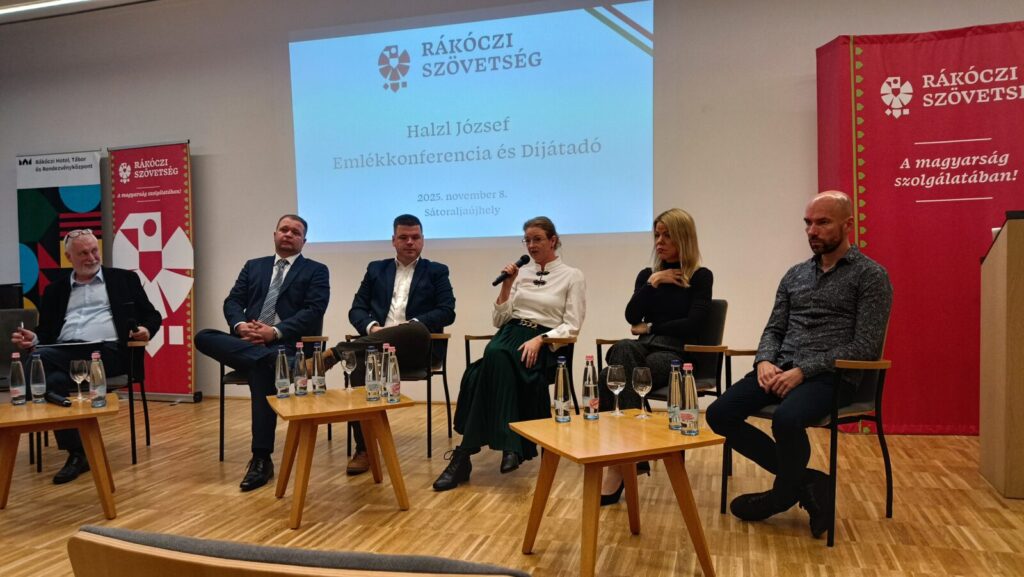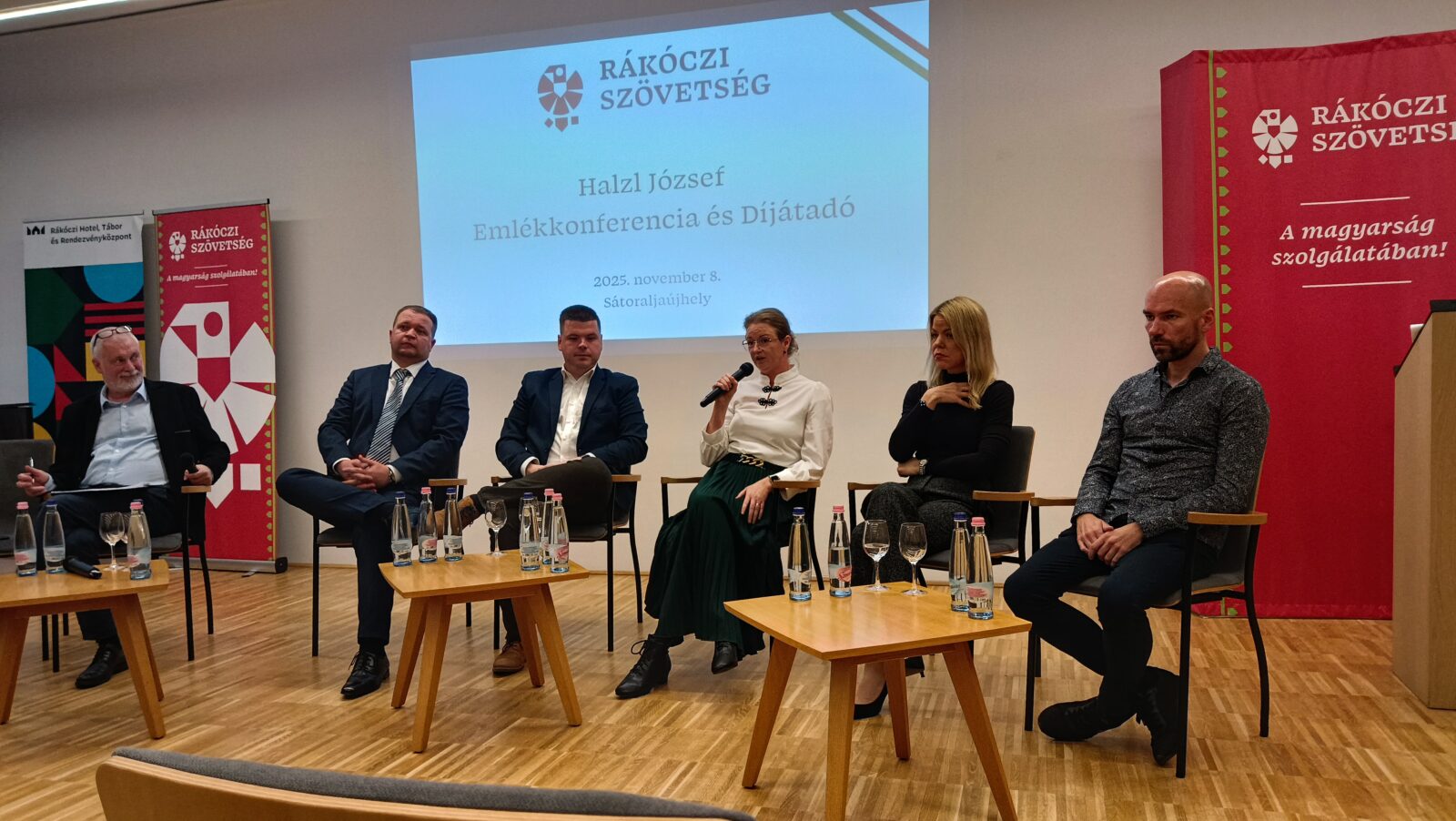
On November 8, 2025, the József Halzl Memorial Conference and Award Ceremony was held at the Rákóczi Hotel, Camp and Conference Center in Sátoraljaújhely, in conjunction with the official opening of the Hotel Princeps. Alongside political, academic, and public figures, the Hodinka Antal Linguistic Research Center was also represented.
The conference, titled “Hungarian Youth Within and Beyond Borders – The Present Youth as the Reality of the Future”, focused on examining the social situation, values, and future prospects of Hungarian youth.
At the plenary session, Miklós Panyi, Parliamentary and Strategic State Secretary of the Prime Minister’s Office, delivered the opening lecture outlining the priorities of Hungarian youth policy. Following his address, Zsolt Németh, Chair of the Foreign Affairs Committee of the Hungarian National Assembly, summarized the key insights of the first session, emphasizing the social and national significance of youth research.
During the researchers’ roundtable discussion titled “Hungarian Youth – Trends and Challenges from a Research Perspective”, several experts from Hungary and neighboring regions shared their insights. Participants included Kornélia Hires-László, Head of the Hodinka Antal Linguistic Research Center; Georgina Kiss-Kozma (MCC Youth Research Institute); Péter Kovács (National Youth Council); Erik Palusek (University of Public Service); and Ferenc Sullivan (Rákóczi Association). The discussion was moderated by Zoltán Kántor, Director of the Research Institute for National Policy.
The Transcarpathian researcher presented key findings from youth sociology surveys conducted in 2016, 2020, and 2024, which explored young people’s living conditions, community engagement, and future aspirations. Referring to data from the Kopp Mária Institute’s 2023 Family Research Survey, she highlighted that, in addition to the challenges posed by the war and economic difficulties, one of the most pressing issues today is the lack of entertainment and community opportunities, which also hinders partner relationships and family formation.
She emphasized the role of higher education institutions, historical churches, and civil organizations in community building, noting that their alternative programs strengthen local youth engagement and social inclusion.
In the conference’s second panel discussion, titled “Youth Organizational Life in Hungary and Beyond Its Borders”, several representatives of youth organizations from abroad participated, including Dorina Somogyi, President of the Association of Hungarian Students and Young Researchers of Transcarpathia.
The József Halzl Memorial Conference provided an important platform for researchers, public figures, and youth representatives to jointly reflect on the challenges facing Hungarian youth today and to reaffirm the message of national unity.

